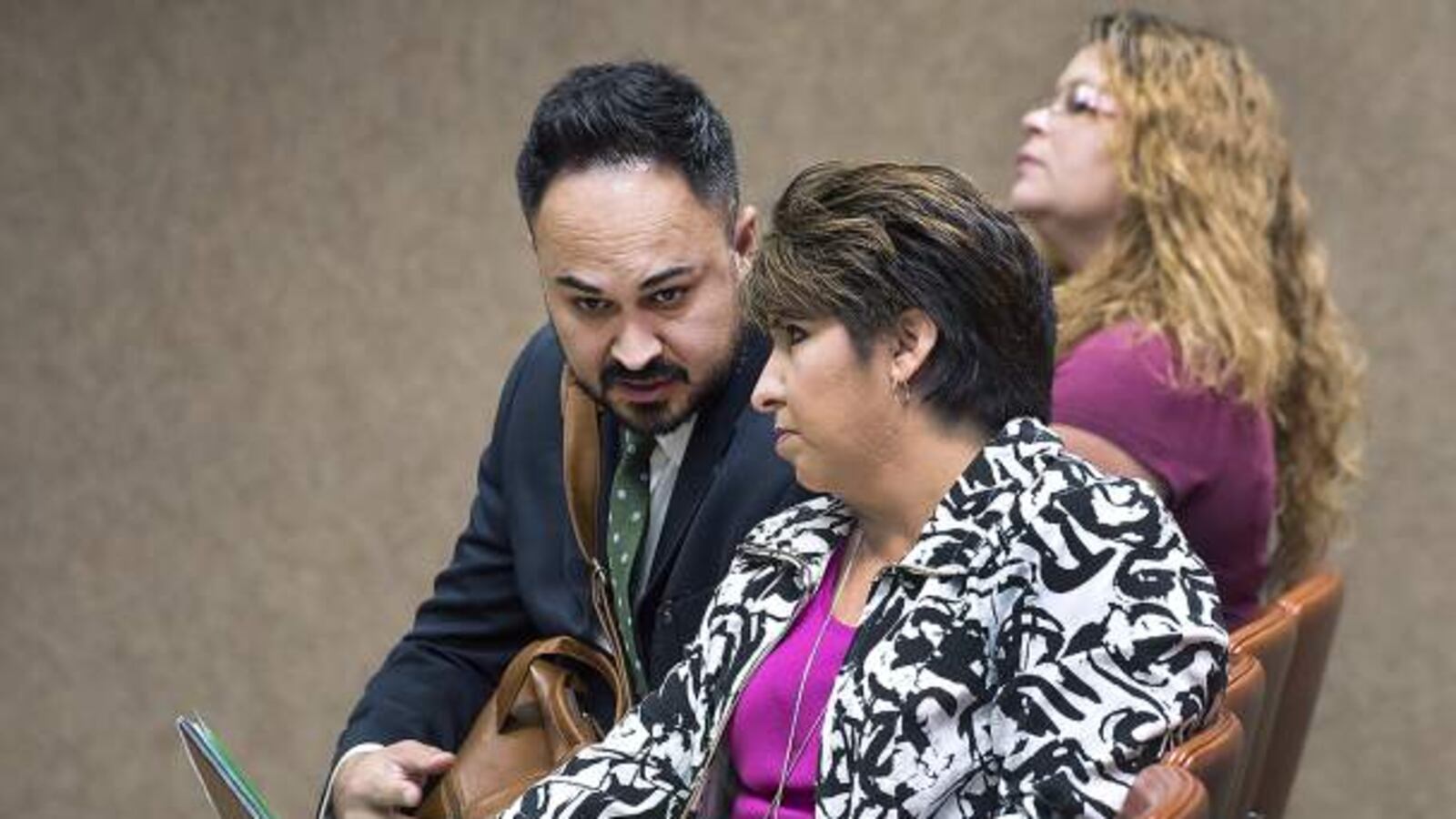The State Board of Education on Thursday gave an outside nonprofit group significant authority in efforts to improve three Pueblo schools.
The group, Achievement Network, or ANet, will have the power to determine the schools’ schedules, tests, and teacher and leadership training.
The board also ordered Pueblo City Schools to submit redesign plans for two of the schools — Bessemer Elementary and Heroes Academy — under the state’s innovation law. That would give the schools flexibility from some state and local policies.
A third middle school, Risley International, already has innovation status.
Thursday’s final plan is not far off from what Pueblo officials had originally suggested to improve student learning. But the board, concerned with high turnover among teachers, principals and district leaders, pushed to give ANet more authority.
Pueblo officials at a meeting earlier this week described its relationship with ANet as a “partnership.” But state board members challenged the idea of giving Superintendent Charlotte Macaluso, and not ANet, final say on a variety of issues.
ANet “needs to be the ultimate decision-maker,” board member Joyce Rankin, a Carbondale Republican, said Wednesday.
Dalton Sprouse, a spokesman for the 17,000-student district, said officials would review the board’s decision with its lawyers.
“There’s still some clarification that we need. We’ll be working on that throughout the day and the coming weeks,” he said. “But for the most part, we’re excited that we get to move forward with our innovation plans and with the partnership with have ANet.”
Under Colorado law, low-performing schools and school districts that fail to improve student learning within five years face state-directed improvement plans. The state board’s decision to approve the Pueblo plan was the last it will consider this year.
A year ago, Pueblo was expected to be the state’s greatest challenge, with more than a dozen schools on the state’s accountability watchlist for persistent low performance. A last-minute boost in test scores saved most of the city’s schools — and the district itself — from state intervention. That left the three schools the state board considered Thursday.
Throughout the spring, the board directed most of the state’s low-performing schools and districts to either develop an innovation plan or contract with a third-party to take over some operations of the schools or districts. In the case of Pueblo, it did both.
The state could have taken more aggressive steps, but didn’t. Officials could have ordered that a charter school take over a failing school, or forced a low-performing district to either split up or merge with a nearby high-performing district
The scope of each state-ordered innovation plan and partnership agreement varies widely between school to school. Pueblo’s management plan is one of the most specific about the authority the management organization has, and had the most input from the state board.
“I feel as though we’ve all learned together,” said state board chairwoman Angelika Schroeder, a Boulder Democrat. We’ve tried to be true to the intent of the legislation. There’s an element of faith to all of this — the commitments that are being made to us, work that is going to be done by outside vendors that is going to helpful to school districts. But I’m optimistic.”
Schools and districts that met with the state board this year will have either one or two years to show improvement or face more drastic direction from the state.

